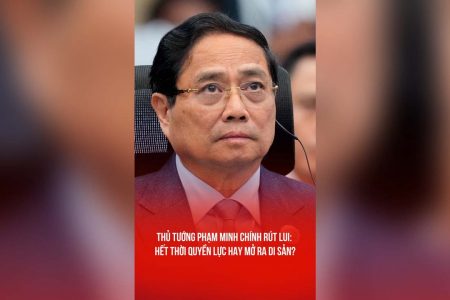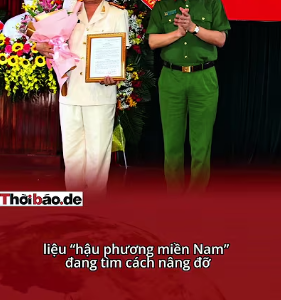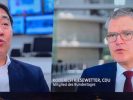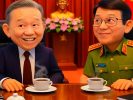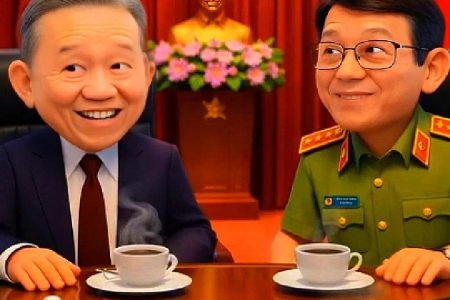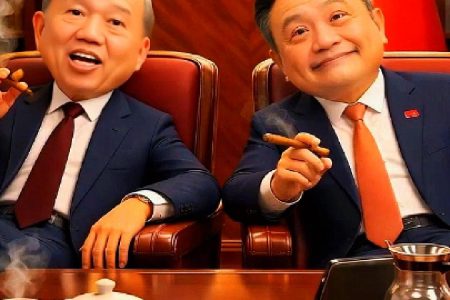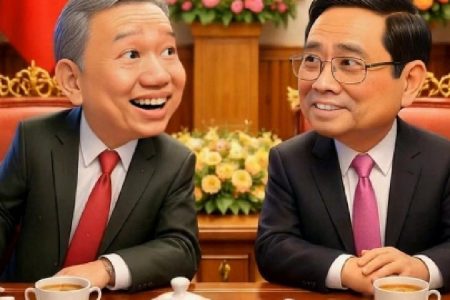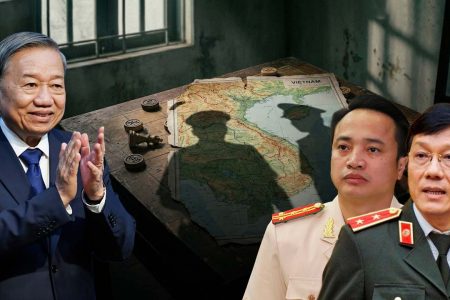
From 2014 to 2017, Mr. Ted Osius served as US ambassador to Hanoi
Ambassador Ted Osius said that the Vietnamese leadership should not be afraid of opposing voices and that free speech is good for development.
During his time as ambassador to Vietnam from 2014 to 2017, Mr. Ted Osius had the opportunity to learn about Vietnam from within, at close range.
Through his meetings with politicians, intellectuals, activists, dissidents and ordinary people, he has better understood the country and people of Vietnam, as well as the differences between the two countries on issues such as democracy and human rights.
In part two of BBC News Vietnamese’s interview series with Bui Thu, Ambassador Ted Osius openly discussed a range of issues, including Vietnam’s impressive development and space constraints freedom of expression.
The government should not be afraid of freedom of expression
BBC: From your personal experience working with academia and the Vietnamese people, how do you assess the soft power that the US is using in its relations with Vietnam? Is American influence limited to areas such as education, humanitarian and human rights?
Former Ambassador Ted Osius: I never underestimate the importance of soft power. When you think about the importance of cooperative education, for the past 25 years there has been a program, the Fulbright Economics Teaching Program, that teaches city officials about modern economics. And now it becomes the Fulbright University of Vietnam. Cooperation in education is entirely beneficial to Vietnam, and as Vietnam integrates into the world economy and develops rapidly, the Fulbright program has directly contributed to Vietnam’s prosperity.
Next is the educational exchange. The truth is that many Vietnamese people come to the United States to study and many Americans come to Vietnam for exchange education. That is extremely beneficial. And think about it, there are quite a few Vietnamese leaders who have received Fulbright scholarships in the United States. That allows for the building of friendships and for the two sides to understand each other better. So I think those are extremely important elements of the relationship between the two countries.
Having a good security relationship is important, but without a foundation of mutual trust, the security relationship will not thrive. We build trust by understanding each other. Trust is the product of a good relationship. The fact that so many people are spending time learning about the other country has contributed to the good and trusting relationship between the two countries. That is very, very beneficial.
BBC: Vietnam is a communist state, while the US is a democratic country, do you think different ideologies can still bring the two countries together?
Former Ambassador Ted Osius: I don’t think trust is created overnight. I think it is necessary to make great efforts to build, maintain and develop trust between the two countries and the two peoples.
A big step was taken when General Secretary Nguyen Phu Trong visited the United States, received and met President Obama in the Oval Office. And President Obama said, we respect different political systems. And that was included in the joint statement afterwards.
Next, Secretary of State John Kerry publicly said that the United States can respect political systems that are different from our own. That is important for building trust with Communist Party leaders, because it makes it clear that the goal of the United States is, in fact, for Vietnam to grow and prosper, to become a more prosperous and successful country, more public and independent, not to undermine the Vietnamese government or seek to change it. We tried to change the government (South Vietnam) in the 1960s and 1970s, but without success. And what President Obama has said is we’re not going down that path anymore. And with different political systems, we both have to respect the other’s political system.
President Obama also said that you have to understand who we are. And he talks about human rights and the importance of free speech. He said that we Americans care deeply about these things. We care deeply about everyone’s human rights and freedom of expression. And in fact, it is in the constitution of Vietnam. Commitment to respect human rights and freedom of expression and commitments to Vietnam are made in the international convention on human rights. So I think part of Vietnam’s basic aspiration is to respect human rights and allow more freedom of expression.
But there are people in Vietnam’s leadership and security forces who are worried about freedom of expression and very worried about bloggers and about bloggers saying things critical of the Communist Party. I think they should relax. Honestly, I don’t think they need to worry about bloggers overthrowing the government or overthrowing the party. I think freedom of speech is very healthy and that will only make Vietnam stronger and more prosperous as more and more freedom of speech is allowed. But I understand there are different views on this.
BBC: Activists in Vietnam always wish the US government would do more but it seems the US is more interested in Vietnam’s geopolitics in relation to China and the value of military cooperation with Vietnam rather than advocating for democratization?
Former Ambassador Ted Osius: When I was an ambassador, I always argued that Vietnam should be confident and know that allowing the people to speak out wouldn’t do any harm, wouldn’t destabilize the country.
And the bottom line is that the US does not want Vietnam to be unstable, the US wants Vietnam to be strong, prosperous, independent and contribute to regional security and global challenges that we all face. I welcome the voices of activists. I think they need to be heard. And I know that people in the US government listen to human rights activists and respect the work they are doing.
I sometimes condemn quite harshly the Vietnamese leadership for imprisoning activists and bloggers. I’m critical, but I don’t usually say it publicly because I don’t think it works. I think the back-and-forth would be more effective. And then we also explained that, this is America, if you want to have the fullest possible relationship with us and with the rest of the world, you need to live up to the commitments you made to the international community according to international human rights standards and that Vietnam has huge economic aspirations.
Vietnam wants to move from the bottom of the middle income countries to the upper middle, the only way is to allow innovation to flourish, because today’s economy is driven by knowledge and innovation, and that happens when people are allowed to express themselves.
And to make that leap, I think what Vietnam can do to become an above-average country is to allow innovation to flourish. That means allowing different ideas to form without fear of them causing instability.
In my view, as Vietnam becomes more prosperous, it will also become more stable and will maintain an upward trajectory in terms of stability, more open to economic and more open to innovation, creativity and ideas. I don’t think openness will destabilize the country.
I think you can become more innovative and at the same time remain stable and prosperous, because Vietnam is successful economically and has been very successful diplomatically. Vietnam has been very successful when it comes to free trade agreements with many countries. The majority of Southeast Asian strategic thinkers are in Vietnam. With all these successes, I hope, Vietnam will have great confidence to choose its own path, and no one else will choose for it. Vietnamese people can raise their voices. And that won’t threaten stability.
The two countries have intertwined interests
BBC: Do you think that the United States and Vietnam have many intertwined interests and that strengthening relations will bring benefits to both sides?
Former Ambassador Ted Osius: I hope so. I also believe that. I think we have too many intertwined interests. Our interests are not the same, but there is a lot of overlap. There are many areas of mutual interest.
We share the same concerns about freedom of navigation and peace in the South China Sea. We care about how the Mekong is managed so that people downstream have a say in what happens to their environment. We share a common interest in fighting the pandemic and we have worked together for public health for many years.
We have a common interest in effectively dealing with climate change. We share a common interest in prosperity and stability in Southeast Asia.
We are equally interested in the private sectors that are becoming more closely linked. I have seen a lot of US companies and investors come to Vietnam and find it a welcoming place for them. So I think we have a common interest in further prosperity and better trade between the two countries.
And we can have arguments about human rights and about the extent to which people should be allowed to express themselves freely. But it was an argument between friends. And we present that argument respectfully.
We respect differences in culture and political system. But I believe that makes our partnership stronger and stronger. And I really think that if run well, it will continue to grow.
Thoibao.de (Translated)



